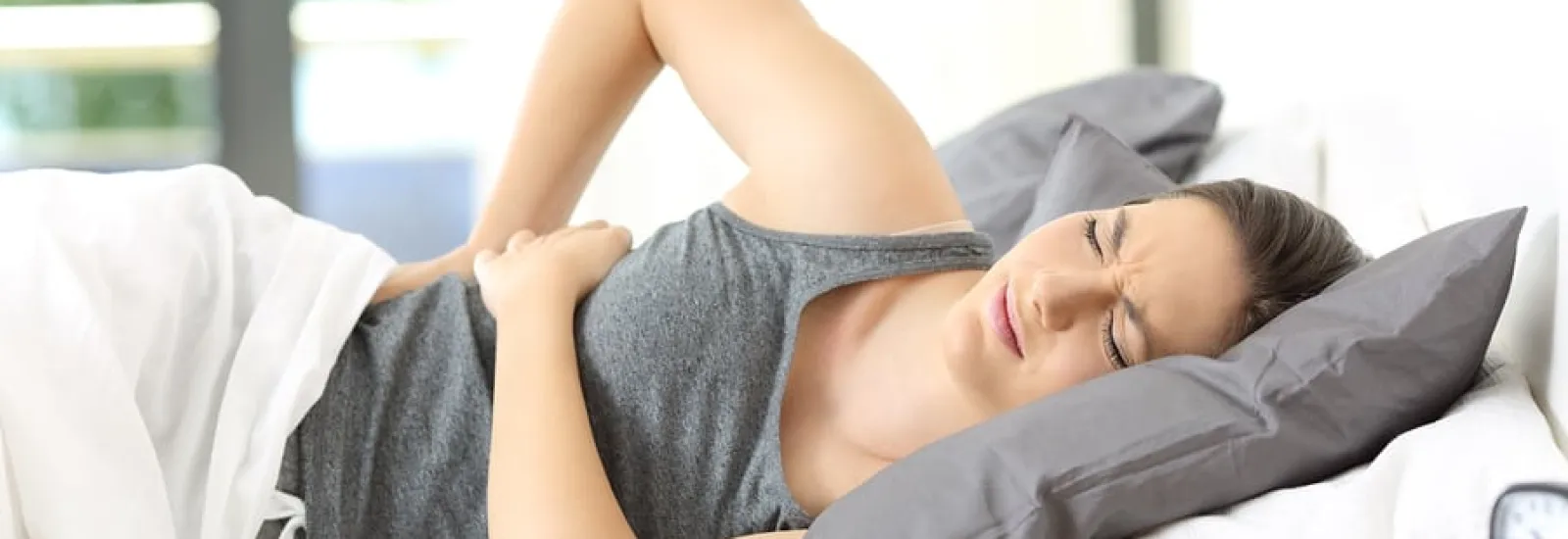
5 tips to lessen back pain at night
About 80 percent of Americans will experience lower back pain at some point in their lives. Depending on the cause -- which could include injury, arthritis, and chronic conditions such as fibromyalgia -- symptoms range from dull, throbbing aches to sharp, shooting pains. If pain becomes too severe it can interfere with quality sleep, leaving you feeling exhausted and depressed. Poor sleep can also disrupt the body's natural healing process, which can make pain worse and keep it from getting better.

Some people can sleep in positions that relieve pain. Others with nighttime back pain might feel like they can't find relief no matter what they do. For these folks, pain could worsen or flare up when they lie down. If this sounds like you and pain is getting in the way of sleep, it's time to try something new. These five tips can help relieve symptoms so you can get the sleep you need.
- Upgrade your mattress. A springy old mattress can make back pain worse. But a super-firm mattress might not be the best solution either. To keep your spine aligned just right while you snooze, you'll need a mattress that's just right. That means something different for everyone, but medium-firm mattresses are usually a good bet. Replace your mattress every eight years for optimal firmness or get a mattress topper for support when it starts to sag.
- Become a back sleeper. It might seem strange, but the best position to sleep for back pain is on your back. To make this position even more comfortable, place a pillow under your knees to take pressure off your back. If you're a side sleeper, pull your legs part of the way toward your chest and put a pillow in between your legs for support. Avoid sleeping on your stomach as it can worsen pain and put pressure on the spine.
- Hit the gym. Getting regular physical activity is a tried and true way to get more sleep. Adding yoga and gentle stretching to your routine can also help reduce stress, lessen pain, and improve the quality of your sleep. Many yoga poses strengthen your core and back muscles, which help reduce pressure on the spine and eliminate muscle spasms while you sleep. Talk to your doctor before trying any new workout to discuss safety measures.
- Heat things up. Heat helps loosen stiff muscles and can reduce pain. Use a heating pad or take a warm shower or bath to soothe stiff, sore muscles before bedtime. Just be sure to switch off the heating pad before you fall asleep to avoid burns.
- Talk to your doctor about medication. If back problems persist, talk to your doctor about the possibility of adding a non-habit-forming medication to your bedtime routine. Over-the-counter medicines such as ibuprofen and aspirin can help reduce pain enough to let you fall asleep and develop normal sleeping patterns. It's important to remember medications are aids, not solutions to help you deal with pain and should only be used under the direction of your doctor.
In addition to the five steps above, practicing good sleep hygiene can help you get a better night's rest. This includes avoiding screen time before bed (blue light from devices might interfere with sleep quality), not drinking alcohol or caffeinated beverages late at night, and eating a heavy meal right before bedtime. Doing something relaxing such as listening to soothing music, drinking warm tea, and reading can also help you fall asleep.
Don't accept back pain as the norm. If your chronic pain continues to interfere with sleep, talk to your doctor about other options such as enrolling in a pain management clinic or seeking complementary therapies like dry needling, massage, or physical therapy.
You can also consider seeing a pain specialist at Reid Health Pain Management.

